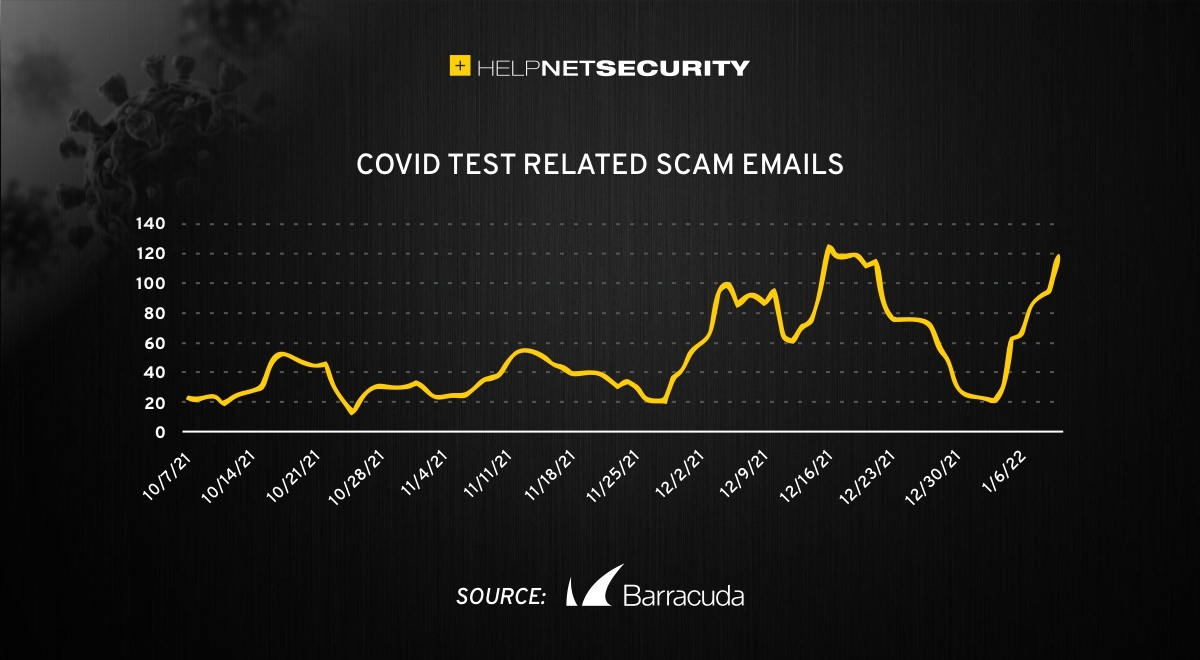COVID test related scam emails still highly popular among cybercriminals
The Omicron variant has contributed to a 521 per cent rise in COVID test related scam emails between October 2021 and January 2022, according to Barracuda Networks.

Researchers concluded that this surge in ‘COVID-test’ related phishing attacks is just the latest edition of COVID-19 themed phishing attack campaigns that cyber criminals have exploited throughout the course of the pandemic.
In fact, in March 2020, when COVID-19 started to spread rapidly, researchers observed that COVID-related phishing attacks jumped 667 per cent. Similarly, as vaccination programmes began to roll out at the start of 2021, so too did a new wave of vaccine-related email threats.
This time round, scammers are using some different tactics to get the attention of their victims. One of the most common scams include offers to sell counterfeit or unauthorised COVID tests, and other medical supplies such as masks or gloves.

Other scams involve the use of fake notifications of unpaid orders for COVID tests, where scammers provide a PayPal account to receive payments to complete the purchase of rapid COVID tests. Also, some scammers have been impersonating labs, testing providers or individual employees sharing fake COVID test results.

Fleming Shi, CTO for Barracuda Networks, commented: “Capitalising on the chaos of the pandemic is not a new trend in the world of cyber crime. But, with constantly evolving tactics, and new trends to latch on to, it’s easy to see why scammers are not giving up on this trick.
“Just like the threat of COVID-19, pandemic-themed scams are not going to disappear overnight, but fortunately there are a number of tactics that businesses and consumers can employ to ensure they remain protected.
“For a start, businesses must leverage sophisticated email security which utilises artificial intelligence to detect and block email attack tactics that are designed to bypass basic gateways and spam filters. Providing employees with up-to-date user awareness training about COVID-related phishing, seasonal scams, and other potential threats is also a vital cyber crime prevention method which must be adopted.”